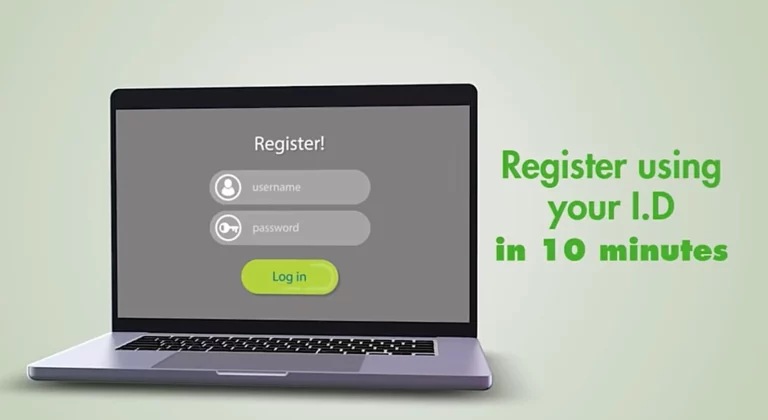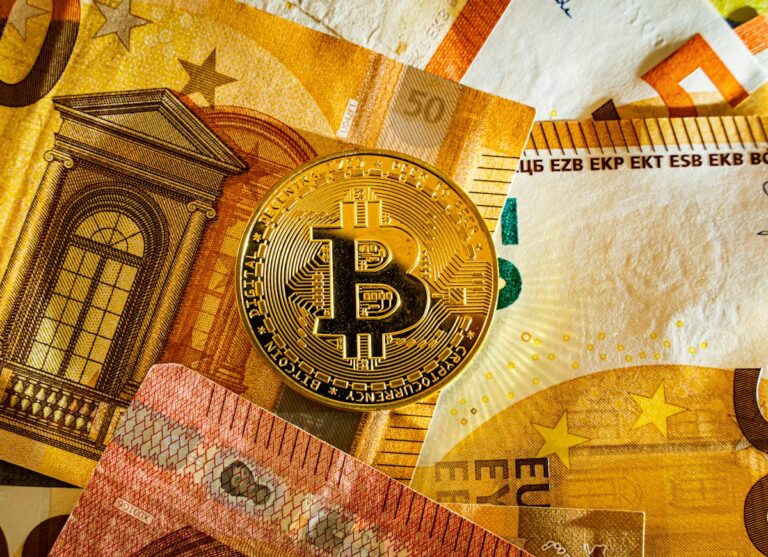Online Lending in the Philippines: What You Need to Know
The rise of online lending apps in the Philippines has provided Filipinos with easy access to loans. However, with this convenience comes the question of whether these online lending apps are legal and if they comply with lending regulations in the country.
So, is online lending legal in the Philippines? The short answer is yes, but with certain conditions and requirements that must be met by both the lender and the borrower. In this blog post, we will discuss the legality of online lending in the Philippines, the regulations governing these transactions, and the rights and responsibilities of both parties involved.
Online Lending Apps in the Philippines
Online lending apps have become a popular way for Filipinos to access quick cash. These apps offer convenient and fast loan applications and disbursements, often with minimal requirements. However, the ease of accessing online loans in the Philippines has also led to concerns about predatory lending practices, high interest rates, and abusive collection tactics.
It is important for borrowers to understand their rights and the regulations that govern online lending in the Philippines to ensure they are protected from unfair practices. Borrowers should also be aware of the legitimate online lending apps that are registered and authorized to operate in the country.
Legality of Online Lending in the Philippines
Online lending is legal in the Philippines, but it is highly regulated by the government to protect borrowers from predatory lending practices. The Securities and Exchange Commission (SEC) is the primary regulator of financing and lending companies, including online lenders, under the Lending Company Regulation Act (Republic Act No. 9474).
The SEC has issued guidelines and circulars that specifically address the conduct of online lending apps and platforms. These include the Memorandum Circular No. 18, Series of 2019, which outlines the unfair debt collection practices of financing and lending companies (FCs and LCs). This circular prohibits certain actions by lenders, such as using violence or threats, disclosing personal information of borrowers, and engaging in deceptive or humiliating practices to collect debts.
The National Privacy Commission (NPC) also plays a crucial role in regulating online lending apps, particularly in enforcing the Data Privacy Act. The NPC has taken action against online lenders that engage in debt-shaming and unauthorized disclosure of borrowers’ personal information.
Requirements for Online Lenders in the Philippines
For an online lending company or platform to legally operate in the Philippines, it must be registered with the SEC. The SEC maintains a list of registered online lending platforms on its website, and borrowers can verify the legitimacy of a lender by checking this list.
To obtain a certificate of authority to operate, online lenders must meet specific requirements, including:
- Being organized as a stock corporation
- Having a minimum paid-up capital of PHP 5 million for lending companies and PHP 20 million for financing companies
- Complying with the Truth in Lending Act, which requires lenders to provide borrowers with clear and accurate information about the loan, including interest rates and fees
- Adhering to the Data Privacy Act and obtaining consent from borrowers for the collection and processing of their personal information
- Implementing fair and transparent lending practices, including proper disclosure of terms and conditions
Rights and Responsibilities of Borrowers
Borrowers in the Philippines have rights that are protected by law. It is important to understand these rights when taking out an online loan. Here are some key rights that borrowers should be aware of:
- The right to be treated with respect and dignity: Lenders are prohibited from engaging in abusive or humiliating behavior, including threats, violence, or disclosure of personal information.
- The right to privacy: Online lenders must comply with the Data Privacy Act and obtain your consent before collecting, using, or disclosing your personal information.
- The right to fair and transparent lending practices: Lenders must provide clear and accurate information about the loan, including interest rates, fees, and repayment terms. They cannot charge excessive interest rates or fees.
- The right to file a complaint: If you believe an online lender has violated your rights or engaged in unfair practices, you can file a complaint with the SEC or the NPC.
It is also important for borrowers to understand their responsibilities when taking out an online loan. These include:
- Reading and understanding the terms and conditions of the loan agreement before signing
- Providing accurate and truthful information to the lender
- Making timely repayments as per the agreed-upon schedule
- Communicating with the lender if there are any issues with repayment
How to Identify a Legitimate Online Lender in the Philippines
When considering an online loan in the Philippines, it is crucial to ensure that you are dealing with a legitimate and registered lender. Here are some signs that an online lender is legitimate:
- They are included in the SEC’s list of registered online lending platforms. You can verify this by checking the SEC website.
- They have a physical office address in the Philippines and a valid contact number.
- Their website and app have secure connections, indicated by an “https” prefix and a padlock symbol in the address bar.
- They provide clear and transparent information about the loan, including interest rates, fees, and terms and conditions.
- They do not require you to pay any upfront fees or charges before disbursing the loan.
Unfair and Abusive Lending Practices to Watch Out for
While the Philippines has laws and regulations in place to protect borrowers, some online lenders still engage in unfair and abusive practices. Here are some red flags to watch out for:
- High interest rates and fees: Be cautious of lenders that charge extremely high interest rates or fees that seem unreasonable. Compare rates with other lenders to identify if they are within the acceptable range.
- Unclear or misleading terms and conditions: Some lenders may try to hide important information or use complicated language to confuse borrowers. Make sure you understand all the terms before agreeing to a loan.
- Pressure to borrow more than you need: Legitimate lenders will not pressure you to borrow more than you can afford to repay. Be wary of lenders that encourage you to take out a larger loan than you initially requested.
- Abusive debt collection practices: Lenders are not allowed to engage in harassing, threatening, or violent behavior to collect debts. This includes disclosing your personal information to third parties without your consent.
What to Do if You Have a Complaint Against an Online Lender
If you have a complaint against an online lender in the Philippines, there are several avenues for recourse. Here are the steps you can take:
- Contact the lender directly: Try to resolve the issue by first contacting the lender’s customer support or complaint department. Keep a record of your communications, including emails and chat transcripts.
- File a complaint with the SEC: If the issue is not resolved, you can file a formal complaint with the SEC, especially if the lender is engaged in unfair debt collection practices or has violated lending regulations. You can submit your complaint through the SEC’s online complaint portal or by visiting their office.
- Report to the NPC: If your personal information has been disclosed without your consent or you have been a victim of debt-shaming, you can report the lender to the National Privacy Commission.
- Seek legal assistance: If you believe your rights have been violated, you can consult a lawyer to explore your legal options, including taking civil or criminal action against the lender.
Tips for Safe and Responsible Borrowing
When taking out an online loan in the Philippines, it is important to borrow responsibly and protect yourself from potential scams or abusive lenders. Here are some tips for safe and responsible borrowing:
- Compare rates and terms from multiple lenders: Don’t rush into taking the first loan offer you receive. Shop around and compare interest rates, fees, and terms from several registered online lenders to find the best option for your needs.
- Read the terms and conditions carefully: Before agreeing to a loan, make sure you understand all the terms and conditions, including repayment schedules, penalties for late payments, and other fees.
- Only provide personal information to legitimate lenders: Never disclose your personal or financial information to unverified websites or individuals. Only share sensitive data with registered and trusted online lenders.
- Borrow only what you can afford to repay: Assess your financial situation and only borrow an amount that you are confident you can repay on time. Defaulting on loans can lead to penalties and negatively impact your credit score.
Conclusion: Understanding Your Rights and Responsibilities
Online lending in the Philippines is a convenient option for Filipinos who need quick access to loans. However, it is important to understand the legal framework surrounding these transactions to protect yourself from predatory lending practices.
By knowing the regulations, borrowers can identify legitimate online lenders and recognize unfair practices. Borrowers should also be aware of their rights and responsibilities to ensure they are treated fairly and can take action if their rights are violated.
Remember, if you have any concerns or complaints about an online lender, there are government agencies, such as the SEC and NPC, that are dedicated to protecting the rights of borrowers and enforcing lending regulations in the Philippines.
Is online lending legal in the Philippines? Absolutely, as long as lenders and borrowers abide by the laws and regulations set forth by the Philippine government.
Q: Is online lending legal in the Philippines?
A: Yes, online lending is legal in the Philippines. However, borrowers must be cautious and ensure they are dealing with reputable lenders licensed by the Bangko Sentral ng Pilipinas (BSP) to avoid falling victim to abusive collection practices.
Q: What should I know before applying for an online loan in the Philippines?
A: Before applying for an online loan in the Philippines, make sure to read and understand the terms and conditions set by the lending company. Be aware of your rights as a borrower and be prepared to provide necessary documents such as a valid government-issued ID and proof of income.
Q: How can I ensure the online lending platform in the Philippines is legitimate?
A: To ensure the legitimacy of an online lending platform in the Philippines, check if the company is registered with the Securities and Exchange Commission (SEC). Additionally, make sure to review the BSP’s guidelines on lending and financing to protect yourself from potential scams.
Q: What are the collection practices of online lending companies in the Philippines?
A: Online lending companies in the Philippines must adhere to fair and legal collection practices. Borrowers should be aware of their rights and report any abusive collection practices to the BSP or SEC if they encounter any issues.
Q: Can I face legal consequences for unpaid online loans in the Philippines?
A: Yes, failing to repay online loans in the Philippines can have legal consequences. Lending companies may resort to filing complaints with the authorities or engaging in collection practices to recover the unpaid loan amount.
Q: How can I file a complaint against abusive collection practices of financing companies in the Philippines?
A: If you encounter abusive collection practices by financing companies in the Philippines, you can file a complaint with the BSP or SEC. Ensure you have proper documentation to support your case.
Q: What should I do if I need money but have a poor credit history?
A: If you need money but have a poor credit history, consider exploring alternative lending options or seeking financial assistance from non-traditional lenders who may be more flexible in their requirements.
It’s your turn…
Do you have any experiences with online lending apps in the Philippines? Have you ever encountered unfair lending practices or abusive debt collection tactics? Share your thoughts and experiences in the comments below, and let’s discuss further the legality and implications of online lending in the Philippines. Remember to seek legal guidance if you have any specific concerns or complaints. Stay informed and protect your rights as a borrower!
Read also:
- How to Register a Lending Business in the Philippines: A Step-by-Step Guide
- Is Money Lending Business Illegal in the Philippines? A Guide for Lenders and Borrowers
- Is Lending a Good Business in the Philippines? Read Before You Start
- How to Start a Lending Business in the Philippines
- Requirements for Lending Businesses in the Philippines
- #5 Types of Business Loans in the Philippines You Should Know
- Small Lending Business Tips in the Philippines: A Comprehensive Guide




